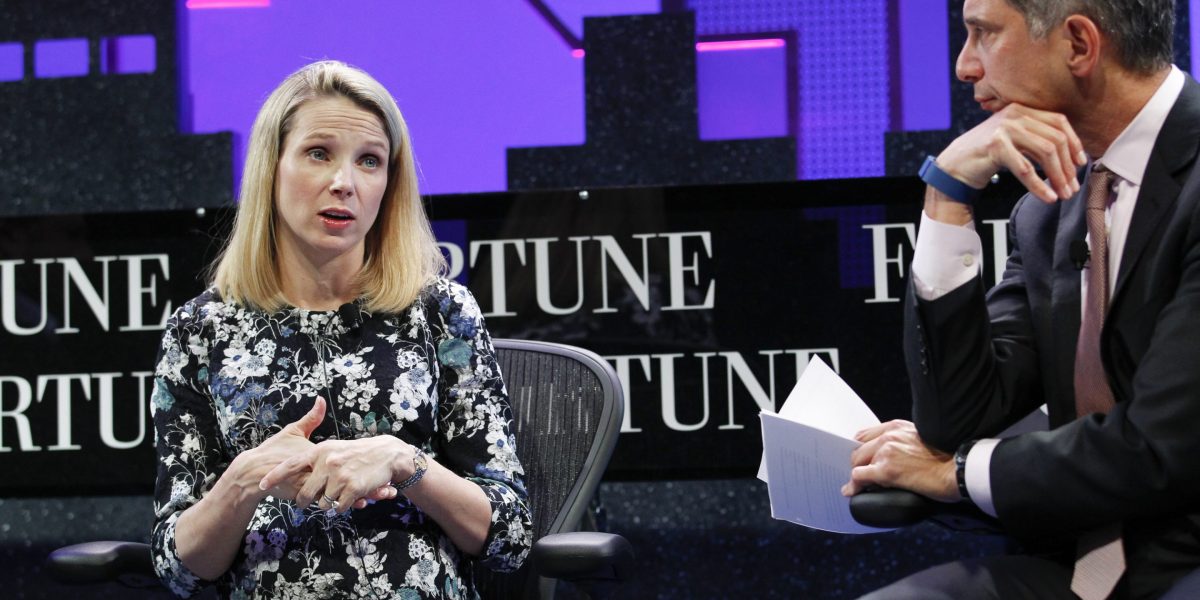Marissa Mayer has served as a source of motivation for women in the technology sector, striving to break through gender barriers in a field largely dominated by men.
After her academic pursuits at Stanford University, Mayer joined Google in its early startup phase in 1999. She played a crucial role in the development of revolutionary products such as Gmail. In 2012, she assumed the role of CEO at Yahoo with the goal of revitalizing the struggling internet giant. Despite encountering obstacles, Mayer successfully tripled Yahoo’s stock price and generated over $30 billion in shareholder value before overseeing the sale of the company’s online operations to Verizon Communications in 2017.
At the age of 48, Mayer currently leads an artificial intelligence startup called Sunshine along with Enrique Muñoz Torres, a former colleague from her time at Google and Yahoo. Their office in Palo Alto, California, was previously the original headquarters of Facebook in Silicon Valley. Recently, she participated in an interview with The Associated Press.
Q: Sunshine employs AI to simplify contact management on a mobile app. Is this not a relatively straightforward task for advanced technology?
A: Our core belief at Sunshine is that numerous mundane tasks create hurdles in daily life. This applies to various areas such as contacts, scheduling, and calendar management, all of which introduce significant friction. By utilizing AI—without necessarily resorting to cutting-edge methods—we aim to address pertinent issues, save time for individuals, and instill confidence in AI capabilities.
Q: Can you elaborate on the functionality of the Sunshine app and discuss your monetization strategy, considering it is provided for free?
A: Upon installation on your iPhone or Android device, the app analyzes your contacts. By connecting it to your email, we identify recurring contacts based on email signatures and interactions. For consistently engaged users, we automatically add these contacts. For users satisfied with our contact management, a monthly subscription of $4.99 allows us to enhance your contacts by sourcing additional information from platforms like LinkedIn.
Q: What are your concerns regarding the advancement of AI technology?
A: The power of AI raises valid safety concerns as it signifies a significant technological leap. While some concerns revolve around the idea of AI dominance, my primary apprehension lies in the development of technologies that closely emulate human intelligence.
As machines approach human-like levels of intelligence, the risk of individuals being misled into perceiving them as authentic rather than artificial entities increases. The challenge lies in discerning reality from authenticity when machine intelligence mirrors human cognitive abilities.
Q: How do you evaluate the tech industry’s efforts in recruiting and promoting women to leadership roles?
A: Progress in gender diversity at the vice president and director levels across various companies indicates a positive trend in enhancing female leadership representation. While strides have been made, the pace of change may not be as swift as desired. Nevertheless, there are observable steps in the right direction.
Q: In light of your directive for Yahoo employees to return to the office during your tenure as CEO, has the pandemic altered your perspective on remote work dynamics?
A: The decision to promote in-office work at Yahoo was a specific response to the company’s challenges at the time. While approximately 1% of employees had official work-from-home status, around 10% were informally working remotely without suitable arrangements, affecting their productivity.
Transitioning to a fully remote work setting presents challenges in maintaining organizational culture, including elements such as leadership development, alignment of vision, and fostering a cohesive team focused on product goals and strategic planning.
Q: Are you still keeping tabs on developments at Yahoo?
A: I continue to follow Yahoo’s progress with interest. The saying “you bleed purple” (referring to the company’s former logo color) resonates with me, highlighting my enduring bond with the organization. I take pride in the accomplishments of current and former Yahoo employees who have ventured into various roles within the industry, fostering a sense of community and solidarity.
This interview has been gently revised for enhanced clarity.










